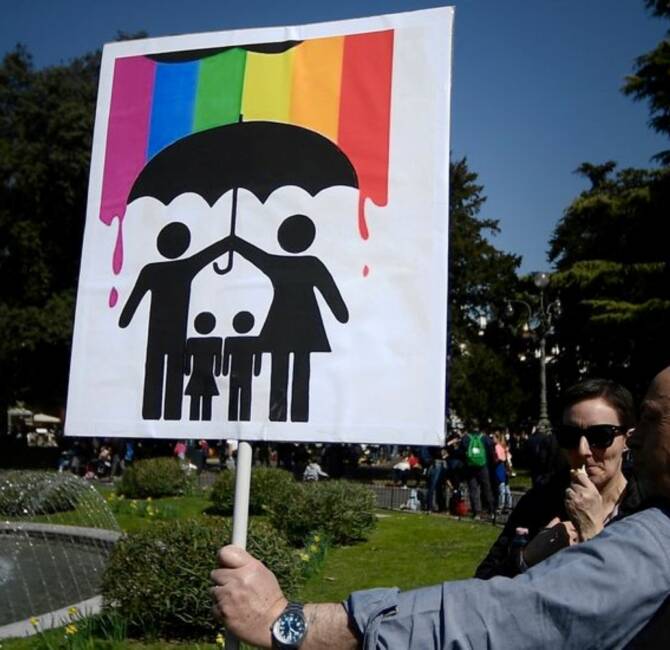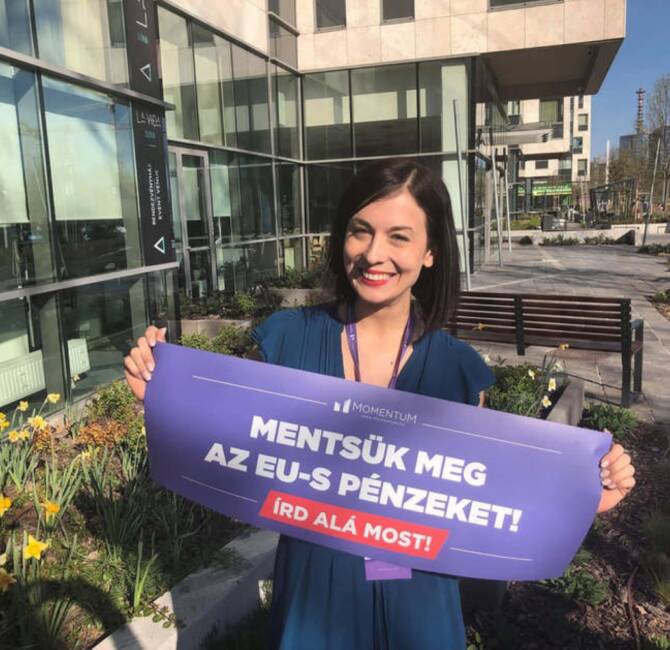This article was published online by the Magyar Nemzet on 1 March 2022.
The many hours of Skype interviews that our newspaper recently came into possession of have revealed further details about how human rights organisations induce journalists to publish materials attacking pro-sovereignty countries, including Hungary. According to the accounts of the former heads of various non-governmental organisations (NGOs), tricks include the generous covering of costs; however, an invitation to lunch can be equally effective. They admitted that both Andrew Connelly, the author of a number of articles seeking to discredit Hungary in connection with the migration crisis, and the Central European correspondent of the BBC cooperated with Soros organisations. The latest interviews form part of the bulky folder of documents which our newspaper received weeks ago from an unknown e-mail address and which we are covering in a series of articles.
Various NGOs buy the services of journalists with paid trips, good hotels and lunches in restaurants in order for them to represent various countries in the international media according to their narrative. In a Skype interview sent to our newspaper, Andrej Nosko, a former director of George Soros’s Open Society Foundations (OSF) said, among others, that he paid journalists for the above purpose on a number of occasions.
Generously reimbursed costs
In his words, as a head of OSF, he also hired journalists to promote publications released by grantee think tanks, while on one occasion, he hired a media worker for an entire month to write about anti-corruption cases. He added that as paying journalists a fee is a delicate matter, they typically “only” cover the costs. In the case mentioned, the amount paid towards the journalist’s accommodation, meals, travel expenses and interpreting services amounted to almost ten thousand euros in a month.
Nosko’s account also reveals that they have their own tried and tested people for such jobs. One such person is Andrew Connelly who attacked countries opposed to immigration, including Hungary, in connection with the migration crisis. Among others, Mr Connelly indirectly blamed the Hungarian and Polish governments even for the fire that broke out in the Lesbos refugee camp with reference to the fact that the two countries rejected the mechanism of mandatory distribution quotas. Additionally, he referred to Fidesz as an extreme-right party, and claimed in one article that the Hungarian government starves asylum-seekers.
Enhanced scandals
Andrej Nosko further described the method for how to use materials that cannot be accommodated in international newspapers dealing with day-to-day politics such as Politico or the Financial Times. He took the view that anything can be published in some magazines in the form of more detailed reports. In his view, the magazines New Europe, Visegrád Insight and National Geographic are equally suitable for such purposes. He said it is key that the given story should capture the attention of newspapers, and to this end, in his view, it is even possible to create news values.
A good example is an article discrediting former Czech Prime Minister Petr Necas published in Newsweek in 2015 – another piece by Mr Connelly – in which tabloid elements are mixed with actual facts. The article features story snippets such as that then Czech Finance Minister Andrej Babis conducted his first business dealings at the age of just nine: he sold tennis balls. With reference to a report of Transparency International, another organisation sponsored by George Soros, an article claimed that the Czech Republic was ranked between Malaysia and Bahrain regarding the level of corruption.
By the account of the former director of the Soros Foundations, it makes the publication of such materials all the easier that in a number of countries there is a grant system in place for the funding of anti-corruption organisations such as think tanks and investigative agencies.
Well-fed journalists
Orsolya Jeney, a former director of Amnesty International, described in a Skype interview how they seek to manipulate members of the foreign press in order for them to cover certain topics according to the opinions of human rights organisations.
‘If members of the foreign media come to Hungary, we treat them a little like VIPs, we treat them as special. For instance, you are going to go out and have breakfast with them, treat them nice, but for example if we issue a report, we present them with food and drinks. Then they are likely to write about if there’s also a communication package,’ she said.
The former director also spoke about her cooperation with BBC Central European correspondent Nick Thorpe. ‘All we had to do is tell him: Hey, Nick, there’s something that might interest you,’ she recalled.
Mátyás Kálmán, a former contributor of the news portals 24.hu and Index spoke openly about the bias of journalists bribed by NGOs: ‘You don’t know whether a given journalist received an invitation to a fine hotel, or how much he or she was offered to write the story that they want to hear told in the media’.
Misrepresentation of Hungary
It is common knowledge that based on the bulky folder of documents sent to Magyar Nemzet’s editorial office a few weeks ago, including tens of hours of Skype interviews, the newspaper has revealed that dominant players of the Soros Empire themselves exposed their influence over the media, their manipulative methods, and the distorted and false image that is presented of Hungary and Poland in the international media.
Brussels would be very relieved
In another Skype interview, Slovak research associate of the American Enterprise Institute Dalibor Rohac mentioned Robert Fico as an example. In his view, the government led by the former Slovak prime minister was rather corrupt. However, as his party formed part of the group of the European Socialists, Fico was never compelled to face the same adverse Brussels reactions as Viktor Orbán. Mr Rohac took the view that if Prime Minister Viktor Orbán were removed from power and the socialists came into government again in Hungary, there would be a massive sigh of relief in Brussels.
In an Internet discussion, Márton Asbóth, an incumbent project leader of the Hungarian Civil Liberties Union (TASZ) pointed out that while foreign press reports continually suggest that there are authoritarian regimes in power in Hungary and Poland, in his view, both countries are great places to live in.
Discrediting, no problem
While in a series of articles entitled SorosLeaks Magyar Nemzet exposed the manipulative practices of NGOs and the international press, similar articles were published in the foreign press as well.
A few weeks ago, the Spanish press exposed the European liberal political elite, making it clear why Brussels continually investigates and harasses Hungary and Poland, and why they are more lenient when it comes to the affairs of other Member States. On the website Periodista Digital, a lengthy article was published, summarising various private conversations and statements of a former Spanish Member of the European Parliament.
Carolina Punset said, among others, that the Western liberal elite apply double standards: they lack the courage to take action against Islam extremists because a large number of Muslims live in Brussels. By contrast, if Members of the European Parliament criticise Hungary or Poland, they will not incur anyone’s wrath in a political sense.
Exerting pressure? But of course!
A few days ago, a French blog published another revealing document on the topic. In the writing subsequently removed from the website in a flash, the Chair-Chief Executive of WAN-IFRA, the World Association of News Publishers revealed how the press organisation he chairs took part in a smear campaign organised against Hungary. The organisation derives its power from having direct access to the editorial boards of the world’s leading newspapers, and with this they are able to influence every aspect of their operations.
WAN-IFRA is partly funded by Soros’s Open Society Foundations.
According to the blog’s report, in a private conversation WAN-IFRA Chief Executive Vincent Peyrégne openly spoke about how exactly his organisation works, and made reference to the funding provided by the Soros Foundations for WAN-IFRA specifically with a view to agitating against the Orbán Government and exerting pressure. When Mr Peyrégne was asked whether it would be possible to exert pressure on Hungary via the European Union and the European Parliament, he said “But of course, it happened before.”




